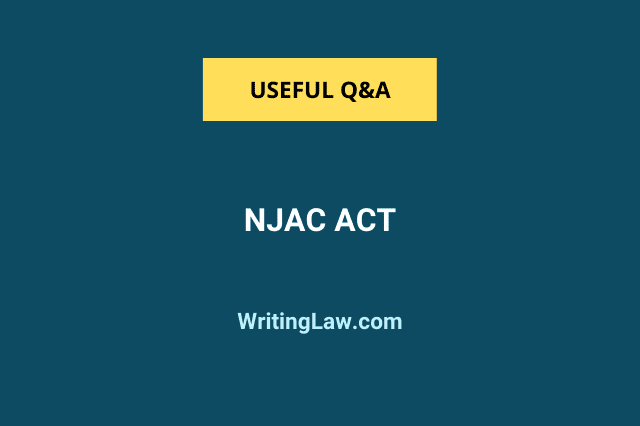
What Is the NJAC Act All About
The National Judiciary Appointments Commission Act (NJAC) is a body introduced with the responsibility to appoint judges to the higher judiciary of India. The idea was propounded with the amendment in the Constitution by the 99th Amendment Act, 2014.
The NJAC Act sought to replace the already two decades prevailing system of appointing judges with a group of other judges, called the collegium system.
NJAC Act comprises six members, including the Chief Justice of India (CJI), the law minister, two senior-most judges of the apex court, and two notable people nominated by the panel consisting of the Prime Minister, CJI, and the leader of the opposition in the Lok Sabha.
As the NJAC would have been responsible for the appointment, recruitment, and transfer of the judicial officers, it was on the table of hot discussion with contradicting perspectives of the opinionated professionals.
This law article discusses the National Judiciary Appointments Commission Act with arguments against and for it.
Arguments Made Against the NJAC Act
Some of the drawbacks that were the reasons for the discussion of the NJAC Act are:
- NJAC Act would jeopardize the independence of the judiciary as guaranteed under the existing collegium system because, as a part of the basic structure of the Constitution, it is the sole right of the judiciary to appoint judges.
- Since the system does not comprise absolute legal professionals, the probability of getting a sound decision would be less.
- On the two notable people’s sides lies a veto power which can be misused by them by striking a valid point and hence thwarting the sound decision from coming out.
- If any questionable conduct takes place from the panel members’ side, no provision is available to terminate any of them.
- NJAC Act amounts to complete arbitrariness. Since the appointment of two eminent persons lacks the process of evaluation and is completely up to the decision of the CJI, the Prime Minister, and the leader of Lok Sabha, it amounts to a violation of Article 14 of the Constitution, which provides for equality and non-arbitrariness in decision making.
- The government, the largest litigator in the court, would undermine the integrity of the CJI. The role of CJI is not limited to the adjudication of all disputes but also to examine the legal constitutionality of powers exercised and decisions taken by both the executive and the legislature. So, it is essential to maintain the independence of the judiciary from the legislature and the executive.
Arguments For the NJAC Act
Reasons for some of the professionals to favour the NJAC Act are:
- How come only the appointment of two notable people from non-judicial backgrounds can threaten the judicial system?
- NJAC Act ends the opaque mechanism and ensures transparency and accountability within the collegium system.
- NJAC Act brings integrity between the judiciary and executive and makes it all-inclusive.
Conclusion of the Debate
The Supreme Court rejected the NJAC Act along with the 99th Constitutional Amendment Act, which gave politicians and civil society to have a say in appointing judges in the higher courts after several people and bodies filed the petition, with the Supreme Court Advocates on Record Association being the first and lead petitioner.
The five-judge Constitution Bench gave the verdict in a 4:1 majority and struck down the NJAC Act, declaring it unconstitutional and void.
Justices J.S. Khehar, Madan Lokur, Kurian Joseph, and Adarsh Kumar Goel gave their verdict against the NJAC Act. In contrast, Justice Jasti Chelameswar gave the verdict in favour of the NJAC Act.
Read Next:
1. What Is Blanket Order?
2. Impact of Pending Cases in Indian Courts
- What Does “Justice Delayed Is Justice Denied” Mean? - 28th April 2023
- What Is Volenti Non-Fit Injuria Under the Law of Torts? - 25th April 2023
- What Are the Differences Between Possession and Custody? - 24th April 2023







